بسم الله الرحمن الرحيم
It is narrated in sahih Bukhari that Ibn ‘Abbas, God be pleased with him, quoted God’s Messenger صلى الله عليه و سلم as saying: “If the final cure lies between using a syrup of honey, scarification by cupping or cauterization by fire, I utterly forbid my followers to use cauterization.”
On this subject, hakim Abu ‘Abdullah al-Maziri said: “Congestive diseases are due to blood, yellow bile, phlegm, or black bile. When blood is the cause, then bloodletting is the remedy. Moreover, if the other three humors are the cause, then their remedies consist of using the respective cleansing purgatives.” In the above prophetic saying, it appears as though God’s Messenger صلى الله عليه و سلم favors the use of honey as an important abluent and a mild prurient over acerbic laxatives, and he gave precedence to the use of scarification by cupping over cauterization. Some commentators interpreted venesection (phlebotomy) as a branch of scarification by cupping, and when medication is ineffectual, then cauterization by fire is the last resort.
In another prophetic tradition, God’s Messenger صلى الله عليه و سلم said: “I personally do not like to use cauterization.” Here, God’s Messenger صلى الله عليه و سلم suggested cauterization as a curative only when other decongestive medications fail, and that expelling minor pain may not require resorting to sustaining extreme pain due to branding by fire. Sa’id al-Khattabi narrated that God’s Messenger صلى الله عليه و سلم cauterized Sa’ad bin Mu’az to prevent a hemorrhage which would have been fatal if not treated immediately.
Some physicians (hakims) contend that humoral diseases are caused by either interaction with body fluids or without them. As we earlier stated, the four humors can be either hot, cold, moist, or dry, or they manifest as compounded and are known in Arabic as akhlat. The temperaments of hot and cold are effective, while the moist and dry ones are passive. Ordinarily, an effective temperament occurs with a passive one. As such humors exist in a kinetic state, interspersing with the elements of the body, they constantly adjust to any imbalance of body fluids. Therefore, the substance of the prophetic saying concerning the basic nature of treating a hot or cold diseases is in the cleansing of the blood with bloodletting by either cupping or venesection. Such procedures involve purgation and consequently prove cooling to the humor. On the other hand, treating a cold temperament requires heating of the elements, and such property exists in honey and therefore does not require purgation, because honey is an aperient, a refurbisher, a solvent, and an abluent. Such humoral imbalance will be cured gently and safely in contrast to the discomfort associated with using a strong purgative.
As for administering cauterization by a hot element, God’s Messenger صلى الله عليه و سلم approved of its use only as a last resort because a humoral disease can either be: (1) acute and therefore will expire expeditiously without the need for cauterization; or (2) chronic, whereby cauterization is best performed on the affected limb after administering blood purgation. Moreover, such disease will become chronic once a cold and dense element burrows under the skin to develop a cold and thick crust that will obstruct the balanced function of the humor and that will spread and convert the cells next to it to its own kind. Such contagious disease can be cured by cauterization as a last resort in order to extricate the causative agent. Thus, from such prophetic traditions we learned about the treatment of obstinate diseases when the constitution defeats the strongest of medicines, as we learned the basic treatment of simple diseases from his saying: “The intensity of fever is a scorching torridity that is vented from the boiling of hell-fire, so cool it down with water.”
Cupping
As for the treatment of diseases by bloodletting through cupping as a therapeutic measure, several prophetic sayings are related in sahih Bukhari and in the collection of traditions narrated by Ibn Maja among others. Ibn ‘Abbass also narrated that God’s Messenger صلى الله عليه و سلم said: “Blessed is a servant who practices cupping. It cleanses the blood, dries out internal inflammations, and brightens one’s vision.” He also said: “Cupping (hijama) is one of the best medicines.”
Abu Huraira narrated that God’s Messenger صلى الله عليه و سلم said: “The seventeenth, nineteenth, and the twenty-first days of the (lunar) months are the best days for administering bloodletting through cupping.” Ibn Maja also narrated that God’s Messenger صلى الله عليه و سلم said: “Some of your best treatments lie in taking medicinal snuff (of natural herbs), in venesection, in cupping, and in purgation.” This particular saying is more applicable for the dwellers of the Arabian peninsula and countries of hot climate.
Benefits of Cupping
Cupping is a treatment for a variety of skin diseases. Cupping draws out blood through the skin pores, cleanses the skin of affected parts and draws the natural healing forces to the area. Sometimes, cupping is more effective for skin diseases than venesection, though bloodletting through venesection is a better treatment for abysmal diseases. Deciding to administer one of the two operations depends on several conditions including time, place, age, humors in hot climates, hot seasons and the individual’s hot temperaments if his blood is agitated. Cupping is also helpful for a woman in provoking her menstrual flow. In such case, cupping brings out what venesection cannot. Cupping is better for younger people and for those who cannot brave venesection. Hakims also agree that cupping is a better treatment in hot countries and venesection in cold ones. Cupping should be performed in the middle of the lunar month and when the moon is waning, and particularly during the third quarter of the month. This is because during the first half of the month, blood humor is cooler, uncongested, and is in a state of passive hyperemia. Though each humor ripens at varying intervals, they all reach the peak of their coction in the middle of the month and during the third quarter of it. The same opinion is stated by Avicenna, adding that “cupping should not be administered during the waxing of the moon because the humors and their compounds (akhlat) are not congested or coctant then, and during the last quarter of the month, the intensity of such coction will be inadequate to draw the full benefits of cupping.”
The particular emphasis of this prophetic tradition on cupping is made for those who live in hot climates, and because their blood is thinner and is drawn closer to the surface of the skin. In hot climates, such attraction of the blood by the heat of the sun’s rays may congest in various areas beneath the skin. Although dwellers of hot climates have larger pores, nevertheless sometimes during such heat they may feel exhausted and debilitated. For such prognosis, venesection is dangerous, while cupping causes a natural break up of any formation of blood congestion beneath the skin. This natural treatment accelerates a chain of metabolic processes in the blood humor which is followed by natural purgation and cleansing or flushing of the arteries, and particularly those arteries and veins that cannot be easily venesected. The flushing that occurs in each artery provides dedicated benefits. For example the blood flushing of the basilic vein abates the congestion and inflammations of the liver and the spleen. It also benefits in reducing pulmonary infections, pleurisy and most of the ephemeral blood diseases affecting circulation from the area under the knees and up to the hip joint. As for the median vein of the arm, flushing of its blood will prove beneficial in eliminating transient general bloating of the body if it is caused by the blood humor as well as general blood infection or toxemia. Flushing of the cephalic vein helps balancing ephemeral tremor of head, neck pain and blood congestion or symptoms of cyanosis caused by lack of oxygen or abnormal hemoglobinic condition in the blood. As for the blood flushing of the jugular veins, it helps in cardiac spleen, asthmatic disorder, chronic headache, herpetic eruption and heaviness of eyelids.
Imam Bukhari narrated in his sahih that Anas, God be pleased with him, said: “God’s Messenger صلى الله عليه و سلم was cupped between the shoulder blades and the two posterior neck veins.” ‘Ali, God bless his countenance, narrated that it was the archangel Gabriel that prescribed such cupping to God’s Prophet, upon whom be peace. Also in the _sahih_ it is narrated that God’s Messenger صلى الله عليه و سلم used cupping for a headache he endured during the pilgrimage while wearing _ihram_. Also in the traditions of Abu Dawoud, Jabir related that God’s Messenger صلى الله عليه و سلم applied cupping to his hip because of some strains he sustained.
Administering cupping between the shoulder blades (kahil) helps cure shoulder pain, pains in the upper arms and pain of the throat. Cupping over the two posterior neck veins (akhda’ain) helps treat tremor of head and other conditions of the head (i.e., face, teeth, ears, eyes, nose, and throat) whether such conditions originate from blood infection or from bloating caused by the blood humor.
Points of Application
Tibb medicine holds different opinions concerning cupping the vertex of the skull (jawzat al-qamhouda). On this subject, Abu Na’im al-Asfahani in his book, also called “Medicine of the Prophet”, narrated that God’s Messenger صلى الله عليه و سلم said: “Apply cupping to the vertex of the skull, for it cures five diseases,” among which he cited leprosy. In another correct tradition (sahih) he also recommended the same treatment, adding: “…for it cures seventy-two diseases.” Hakims who researched this prophetic tradition have mentioned some of its benefits, such as: abnormal protrusion of the eyeball (exophthalmic goiter), swelling out of the frontal bone of the skull (frontospheniodal process), besides other indications, including heaviness of eyelids and eyebrows. Imam Ahmad Ibn Hanbal required about the prophetic tradition of cupping of the vertex of the skull, though when he himself needed such treatment, he applied the treatment to the two sides of the vertex. As for Avicenna, he disliked its use, and said: “When administered often, it begets forgetfulness.” The same opinion is stated in another prophetic tradition which says: “The vertex of the skull is the point of memorization; cupping it begets forgetfulness.” Hakims who argue the authenticity of this prophetic saying contend that such cupping will only enfeeble the back of the brain (occipital) when unnecessarily performed, otherwise, when used to overcome blood congestion of the brain or an apoplectic stroke it will certainly be of benefit according to both medical and religious code.
the same treatment, adding: “…for it cures seventy-two diseases.” Hakims who researched this prophetic tradition have mentioned some of its benefits, such as: abnormal protrusion of the eyeball (exophthalmic goiter), swelling out of the frontal bone of the skull (frontospheniodal process), besides other indications, including heaviness of eyelids and eyebrows. Imam Ahmad Ibn Hanbal required about the prophetic tradition of cupping of the vertex of the skull, though when he himself needed such treatment, he applied the treatment to the two sides of the vertex. As for Avicenna, he disliked its use, and said: “When administered often, it begets forgetfulness.” The same opinion is stated in another prophetic tradition which says: “The vertex of the skull is the point of memorization; cupping it begets forgetfulness.” Hakims who argue the authenticity of this prophetic saying contend that such cupping will only enfeeble the back of the brain (occipital) when unnecessarily performed, otherwise, when used to overcome blood congestion of the brain or an apoplectic stroke it will certainly be of benefit according to both medical and religious code.
Applying cupping under the chin helps reduce toothache, face pain, cleanses the head and reduces throat pain when used at the proper time. Cupping on the top of the foot and over the ankle bone is a preferred substitute for venesection (phlebotomy) of the saphena (Arb. al-safin) which is a large vein of the leg and ends over the ankle bone (malleolus). Such cupping helps against inflammation of testicles, leg ulcers, and suppressed menses, while cupping behind the knee (popliteal space) helps in the treatment of aneurysm, chronic abscesses, hemorrhoids, and septic ulcer of leg and foot, and cupping on inner thighs is a good treatment for irritation of the back, gout, and piles.
Prophetic Guidance on The Best Time to Apply Cupping
Imam al-Tirmithi also reported the earlier-mentioned prophetic saying which is narrated by Ibn ‘Abbass that God’s Messenger صلى الله عليه و سلم said: “The seventeenth, nineteenth, and the twenty-first days of the (lunar) months are the best days for administering bloodletting through cupping.” In another tradition, he also said: “Treat yourselves with cupping and do not let high blood pressure (hyperemia; Arb. tabayyugh) kill you.” However, hakims agree that bloodletting through cupping is a beneficial treatment at any other time during an illness. In the traditions of Abu Dawoud, a similar saying is narrated by Abu Huraira, That God’s Messenger صلى الله عليه و سلم once added: “It is a cure for every disease,” meaning every disease that is caused by increase of the blood flow in an organ or tissue or by blood congestion (hyperemia). Al-Khallal narrated that Imam Ahmad ibn Hanbal treated himself with cupping to quell blood agitation without regard to date or time. As for Avicenna, he recommended “cupping to be administered around two or three o’clock in the afternoon immediately after taking a hot bath except where there is increase in the viscosity of the blood, whereby one should take a bath and allow himself to sweat for an hour before applying cupping glasses.”
Cupping should not be administered after a meal, for it may cause indigestion, and particularly after eating a coarse meal where it may endanger discharge of drops of humors, and/or swelling with gout. God’s Messenger صلى الله عليه و سلم said: “Cupping on an empty stomach is a medicine and on a full stomach is a disease.”
In essence, giving preference to date and time for administering cupping is mostly a matter of precaution against unnecessary application for a healthy person. Otherwise, in case of illness, and if the physician finds it indispensable, then one must apply the cupping procedure when and where needed. As for the prophetic saying: “Treat yourselves with cupping and do not let high blood pressure (tabayyugh) kill you,” this tradition relates mostly to those who actually suffer from high blood pressure, wherein the cupping procedure alleviates such tension, and we pointed out earlier the practice of Imam Ahmad ibn Hanbal who treated himself with cupping without regard to date or time.
The Best Days to Apply Cupping
In his book al-Afrad, al-Darqotni related that ‘Abdullah bin Omar quoted God’s Messenger صلى الله عليه و سلم as saying: “Cupping increases one’s memory and wisdom. Apply cupping in the name of Allah, but do not apply it on Thursday, Friday, Saturday or Sunday, while Monday is the best.” Al-Khallal in his collection of prophetic traditions asked Imam Ahmad ibn Hanbal: “Which days of the week do you dislike to apply cupping?” He replied: “In this matter, I know that Saturday and Wednesday are reported in the traditions, and some say Friday.” Abu Bakr, God be pleased with him, used to dislike cupping on Tuesday, and referred to the prophetic saying: “On Tuesday blood does not readily clot” (Reported by Abu Dawoud). As for cupping on Wednesday, Abu Huraira, God be pleased with him, narrated another prophetic saying: “Let one who uses cupping on Saturday or on Wednesday and then suffers from leukemia or leprosy blame only himself.”
Conclusions on the Benefits of Cupping
From the above explanations, we conclude that according to prophetic traditions, medical treatment is necessary, and cupping is recommended and must be applied to the needed part of the body. Cupping can be performed during the pilgrimage even if it requires shaving of one’s hair for medical reasons without the need for ceremonial redemption or fidya (Islamic Law). Cupping may not break one’s fast except under one of the following three conditions: (1) when fasting is prescribed; (2) when one is not on a journey; and (3) when no illness requires its application. However, Imam Bukhari did report in his sahih that “God’s Messenger صلى الله عليه و سلم applied cups during fasting,” and this is perhaps the case of voluntary fasting (nafl). Allah knows best.
VENESECTION AND CAUTERIZATION
Jabir bin ‘Abdullah narrated that “God’s Messenger صلى الله عليه و سلم sent a physician to Abye ibn Ka’ab who bled him from a vein then cauterized it” (sahih Bukhari). It also quoted in the correct traditions (sahih) that “when an arrow wounded Sa’ad bin Mu’az in his forearm (akhal), God’s Messenger صلى الله عليه و سلم cauterized it with a heated thin arrow (mishkhas). Later on, the wound became swollen and infected and he bled it, then cauterized it again.” Abu ‘Ubaid narrated that a wounded person was brought before God’s Messenger صلى الله عليه و سلم who said: “Cauterize his wound, then compress it with a (washed and) heated rock.” Although God’s Messenger صلى الله عليه و سلم used cauterization as a last resource, nevertheless he affirmed: “If there is a choice in treatment between venesection and cauterization, I personally do not like cauterization” (Bukhari and Muslim). In another prophetic saying, we quoted earlier, God’s Messenger صلى الله عليه و سلم forbad cauterization, but he did also say: “…We were faced with trials, but we did not succeed at overcoming them, nor did we take heed (to God’s guidance).” [fabtulina fama aflahna wa la anj’ana] (Tirmithi).
Al-Khattabi commented that “the wound of Sa’ad bin Mu’az was cauterized to help his blood clot, and God’s Messenger صلى الله عليه و سلم was concerned that if it were not treated immediately, Sa’ad would have bled to death.”
Cauterization should be used only as a medical treatment, and is permitted only under dire need just as it is vital in the case of amputation. As for its prohibition, it is intended to counter a social belief that it is manly and that one may die unless he braves such treatment even for a minor cut. That is why God’s Messenger صلى الله عليه و سلم forbade its use as a social custom and because of such declared intention. This attitude became clearer in the case of Omran bin Hasin, who strongly believed in cauterization and branding as cure for every disease. God’s Messenger صلى الله عليه و سلم recognized, in the case of Omran, that cauterization of his particular wound would be dangerous, and he forbade its application. In this instance, it appears that the prohibition applied to critical areas in the body, God knows best. On this subject, Ibn Qutaiba indicated that “there are two kinds of cauterizations: (1) By ‘social customs’, as in the case of a healthy person, which is the one meant by God’s Messenger’s saying: “One who utilizes branding does not trust in God;” and (2) medical, as in the case of a festered wound, or after amputation, and this is what is meant by “as a cure.” When cauterization is recommended as a potential cure, but without certainty, then it is not favored.
It is narrated in the sahih that God’s Messenger صلى الله عليه و سلم said: “Seventy-thousand people among my followers will enter paradise without reckoning –those who do not secretly listen to people’s private conversations, those who do not cauterize, and those who are not pessimistic, and those who place their entire trust in their Lord.” Thus, the prophetic traditions spoke of cauterization and branding in four distinct ways: (1) to use it; (2) not to use it; (3) to praise one who forgoes such therapy; and (4) to prohibit it. All praises be to God Almighty –there is no contradiction between these four opinions, for one may use such treatment when medically needed, making it permissible though disliked. As for its prohibition, it is a matter of choice and personal disposition, and particularly when used as a ‘social custom’– God knows best.
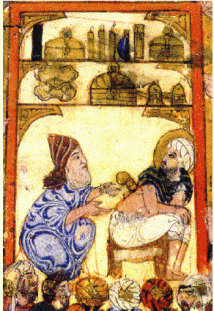


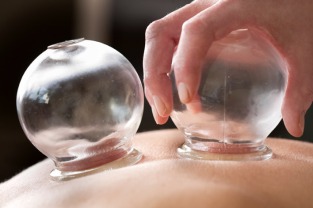

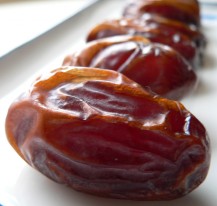

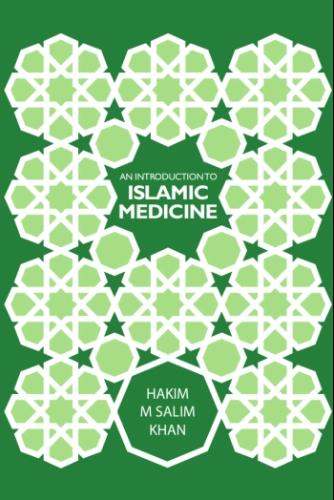
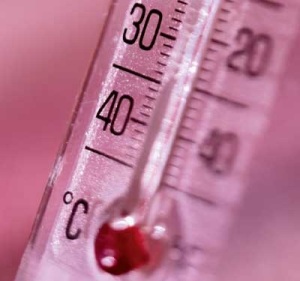 Putting cold pads on a patients forehead is still used in a lot of hospitals and by doctors even though fever reducing medicines are abundant, like aspirin, paracetamol (or acetaminophen, which is the active ingredient in Tylenol) and others.
Putting cold pads on a patients forehead is still used in a lot of hospitals and by doctors even though fever reducing medicines are abundant, like aspirin, paracetamol (or acetaminophen, which is the active ingredient in Tylenol) and others.  When the temperature rises in the temperature regulator, the rest of the body has to comply. It increases its temperature in response. Soon, the whole body feels feverish and the patients temperature rises. This explains the saying of the Prophet when he described the believers in their kindness and affections like the body. If a part of it suffers from a germ or a virus, like inflammation in the respiratory pathways or inflammation of the
When the temperature rises in the temperature regulator, the rest of the body has to comply. It increases its temperature in response. Soon, the whole body feels feverish and the patients temperature rises. This explains the saying of the Prophet when he described the believers in their kindness and affections like the body. If a part of it suffers from a germ or a virus, like inflammation in the respiratory pathways or inflammation of the 
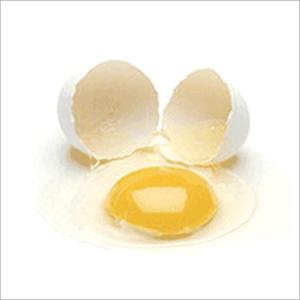 scarring. Egg white is also used to treat sunburns. Applying a balm of egg white mixed with frankincense (olibannum) to the forehead also helps in the treatment of bronchitis. Avicenna also mentioned egg yolk in the treatment of heart diseases, adding: “Though it is not the principal cure, yet it plays an important role in strengthening the heart. Egg yolk convers quickly into blood, leaves little ejecta, and furthermore it converts into light blood that is homogeneous with that of the heart, and lastly, it is among the best nourishment for preventing common illnesses that affect the basic functions of pneuma.”
scarring. Egg white is also used to treat sunburns. Applying a balm of egg white mixed with frankincense (olibannum) to the forehead also helps in the treatment of bronchitis. Avicenna also mentioned egg yolk in the treatment of heart diseases, adding: “Though it is not the principal cure, yet it plays an important role in strengthening the heart. Egg yolk convers quickly into blood, leaves little ejecta, and furthermore it converts into light blood that is homogeneous with that of the heart, and lastly, it is among the best nourishment for preventing common illnesses that affect the basic functions of pneuma.”


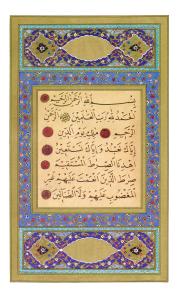 scorpion’s stings, and to recover instantaneously. In one such event, God’s Messenger, peace and blessings be upon him, acknowledged the clarity, purity, and faith of one of his companions, commenting: “And how did you know that Al-Fatihah (dose work as) a charm (ruqya)?”
scorpion’s stings, and to recover instantaneously. In one such event, God’s Messenger, peace and blessings be upon him, acknowledged the clarity, purity, and faith of one of his companions, commenting: “And how did you know that Al-Fatihah (dose work as) a charm (ruqya)?”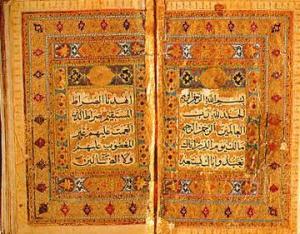 its value, understand its inmost secret, and decipher its code, they would undoubtedly hasten to sculpt the right size, pattern, and number of pegs needed to correspond to the pins in the bolt that opens the majestic safe of Surat-ul Fatihah, which in turn is the master key to the entire treasure of the divine Qur’anic revelation. Thereat, they will be able to stand before an ocean of unlimited wealth, and no one will deprive them of taking whatever they wish for, or of carrying whatever they want.
its value, understand its inmost secret, and decipher its code, they would undoubtedly hasten to sculpt the right size, pattern, and number of pegs needed to correspond to the pins in the bolt that opens the majestic safe of Surat-ul Fatihah, which in turn is the master key to the entire treasure of the divine Qur’anic revelation. Thereat, they will be able to stand before an ocean of unlimited wealth, and no one will deprive them of taking whatever they wish for, or of carrying whatever they want.